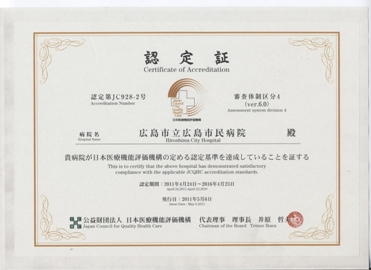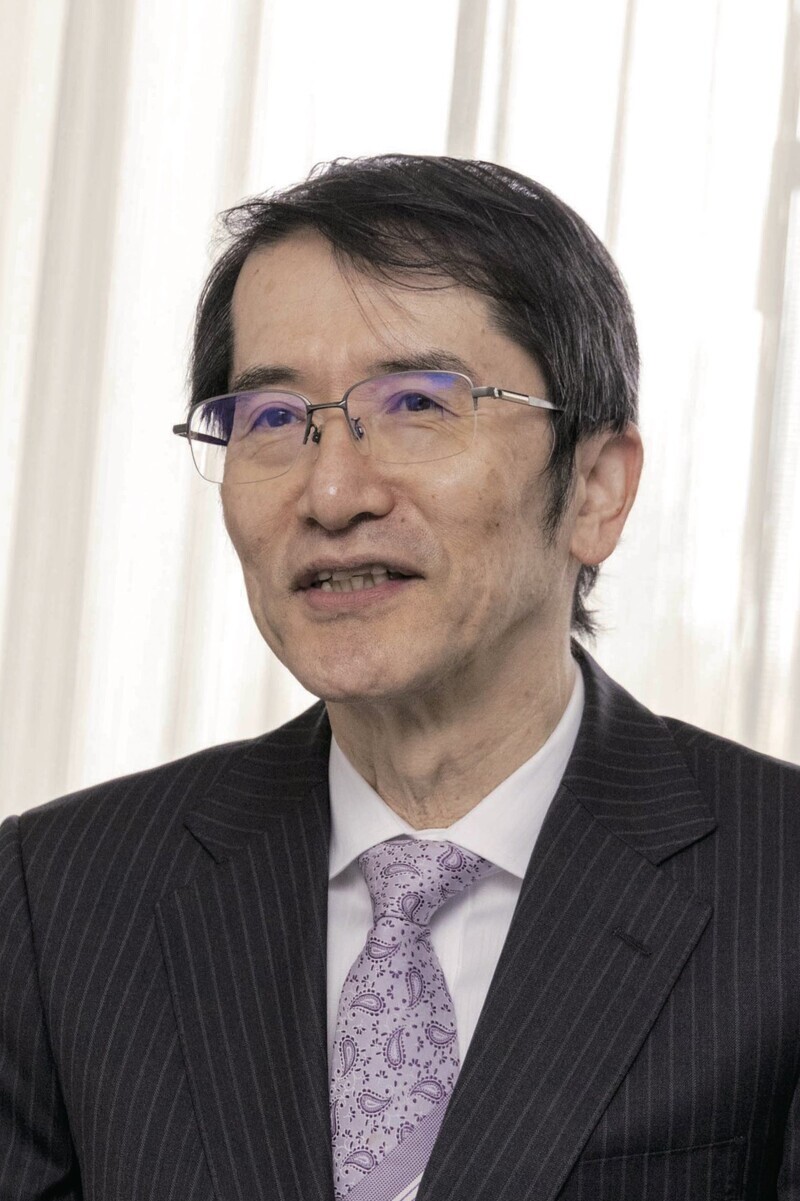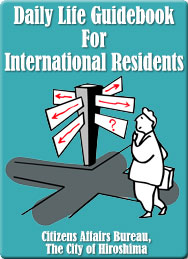Hospital Overview

Greeting from the Hospital Director
Welcome to the website of Hiroshima City Hiroshima Citizens Hospital.
Hiroshima City Hiroshima Citizens Hospital was established in August 1952, while there were still traces of the atomic bomb in many places in the city. It is located in a major transportation hub in the city, and has 743 beds, the largest number among hospitals in Hiroshima prefecture. It is accredited as a regional cancer cooperative hospital, a comprehensive perinatal maternal and perinatal medical support center, and also a support center for regional medical institutes. We progress day by day as a regional core hospital responsible for people's lives and health based on our principles, “Providing safe, high-quality and heartful medical care, working together with patients”. Currently, there are five municipal hospitals in Hiroshima City; four hospitals including our hospital in the Hiroshima City Hospital Organization, and Aki Hospital in eastern suburban of the city. Nevertheless, most Hiroshima citizen recall our hospital by the name of just “Citizens Hospital”. Our hospital has been developing with love, trust and supports of many Hiroshima Citizens until now.
We are one of the first hospital that adopted a North American ER system to provide the first medical care for a variety of patients with illness from mild to most serious conditions around the clock in 365 days of a year. We treat serious cases at any time of the day or night, and perform emergent surgeries as necessary, every day and night. The number of patients with cardiac diseases and strokes is particularly high. We perform catheterization for acute myocardial infarction mostly on daily basis. We also have a large number of cancer and perinatal treatment cases, being scored as one of the best in Japan in terms of the number of surgeries performed under general anesthesia among city hospitals in Japan following university hospitals.
The evolution of medical science is endless. The development of new therapeutics, including anticancer drugs have made it possible for patients diagnosed with cancer to continue their social lives by taking radiation therapy and/or anticancer medications. Robotic surgery has evolved further and can perform far less invasively than conventional operations. Our hospital is accredited to perform catheter valve replacement therapy for valvular heart disease and treat elderly patients who could not be treated before. We have established a sterile room against infection for patients treated with anticancer drugs or in poor immunological condition in 2022, and added the second "da Vinci" surgical robot in 2023. As for COVID-19, new coronavirus infection, we continue to accept patients who are treated for other diseases in our hospital, and those who require advanced medical treatments due to underlying diseases.
The development of medical technology, change of age structure in Japanese population toward the increase of old age people are changing the roles expected for each medical institution. Moreover, the work style reform law for physician came into effect in April 2023 substantially limits work hours of physicians. This is a very difficult situation for hospitals not only in total work hours of individual physicians but also the way of on duty during night, weekend and holidays, and the length of each consecutive work time. Furthermore, the health insurance system revised in 2024 requests more physicians being present in night-time emergencies in high acute care hospitals. In these changes, we are trying to change work styles to improve work efficiency, allocating new staffs, and promoting mechanization with digital transformation to improve the quality of treatment and meet demands of patients as much as possible. Concurrently, we help patients and their families to improve their own health for themselves, and promote their early return to home or transfer to a non-acute hospital before the final return to home or a nursing home.
Thus, we aim to play a central role in hospitals of Hiroshima and neighboring areas, working with them in close association. We intend to perform optimum medical care not only by our staffs, but also with patients, their families and others related to the patients.
We will spare no effort to provide the best medical care and continue to challenge new possibilities for all patients, their families, and others who visit our hospital. Thank you for supporting Hiroshima Citizens Hospital working for life and health of people in Hiroshima City known by everybody in the world.
May 2024
Hiroshima City Hiroshima Citizens Hospital
Director, Michihiro Hide, MD, PhD.
May 1, 2024
Local Independent Administrative Corporation Hiroshima City Hospital Organization Hiroshima City Hiroshima Citizens Hospital
Hospital Director Michihiro Hide
Principles
As a primary hospital of the City of Hiroshima,
we pledge to respect our patients and practice high quality healthcare.
The Three Foundations for Realizing Our Mission
- Respect our patients and practice medicine that is a model of trust and satisfaction.
- Cooperate with regional healthcare establishments and practice highly advanced medicine,
particularly in the area of acute-phase treatment. - Promote sound management practices to assure safe and dependable healthcare.
Core Principles
Our hospital pledges to abide by the following principles in order to continue improving our medical practices which are based on respect for life and love of humanity, to provide specialized and ethically appropriate healthcare, and to ensure and promote the health and welfare of our fellow citizens.
- To do everything within our power with unlimited love and responsibility to meet the needs of our patients.
- To constantly promote self-improvement, refine our medical skills, pursue the study of medicine, and educate our successors.
- To retain and securely protect all patient records, and guarantee that no personal data will ever be divulged.
- To actively cooperate with other regional healthcare establishments for the purpose of creating a united local healthcare network that can provide medical services in a practical and efficient manner.
Japan Council for Quality Health Care Accreditation
This hospital has been accredited by the Japan Council of Quality Health Care (JCQHC)

What is this accreditation?
This accreditation program is run by the JCQHC, a third-party foundation which impartially evaluates healthcare organizations for the purpose of improving the quality of medicine for the public.
Items of Evaluation
-
Hospital management and the role of the hospital in the community
Evaluation of hospital missions, long- and intermediate-term plans, overall organizational management, data management systems and ties with local public health, medical and welfare organizations. -
Patient rights and safety
Evaluation of respect for individual patient rights, procedures to obtain consent for treatment following thorough consultation and provisions to ensure patient safety. -
Therapeutic environment and patient services
Evaluation of employee behavior towards hospital visitors, visitor assistance, medical counseling for patients and their families, privacy considerations, and therapeutic environment. -
Quality of treatment
Evaluation of basic activities meant to ensure quality treatment and operational proficiency of supporting divisions, and the rating of levels of proper service from the perspective of the patient's treatment history. -
Nursing care
Evaluation of nursing policies, organizational structure, and skill development, and the rating of levels of proper service from the perspective of the patient's nursing history. -
Management and administration efficiency
Evaluation of the efficiency and suitability of human resources, financing/accounting, facility maintenance management and legal defense arrangements.
 Japanese
Japanese





